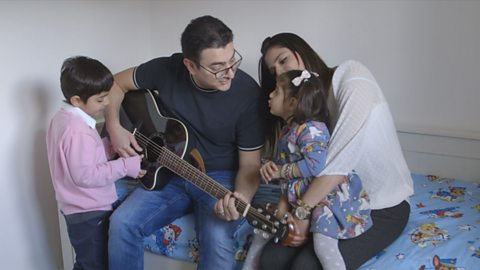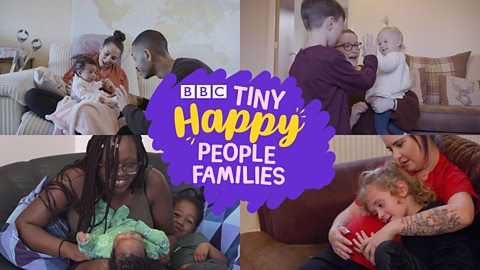Home > Tips and advice > Bonding > Siblings
Psychologist Sandi Mann chatted with some families to see how they manage the relationship between their babies and older siblings.
Playtime with your toddler or older child is an important part of their development and lovely bonding time with Mum or Dad. But spending quality time playing with your older child when you have a new baby can be a challenge.
I caught up with three of our Tiny Happy People Families who have both a new baby with older siblings to find out how they are managing to keep each of their children entertained and happy.
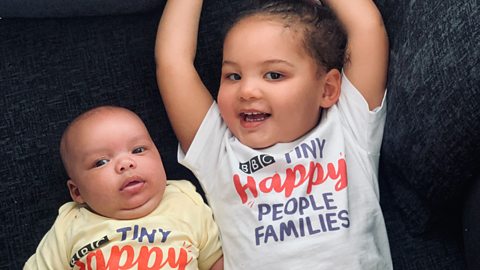
1. DonвАЩt expect siblings to be best friends
Each family said they had high hopes for their children to be вАШbest friendsвАЩ with one another as they grow up. In fact, some of them deliberately planned small age gaps between siblings so that they would have a ready-made playmate.
In this case, it can be very upsetting when this вАШbest friendвАЩ dream seems to be turning into a nightmare. Mhairi explains that when baby Delilah first arrived, her eldest child, River "tried to hit her all the time," which made her feel bad.
Mhairi wondered if her previously loveable toddler had become a monster and admits "I thought it would last forever." She laughs as she says this however, because River is now brilliant with the baby, kissing and cuddling her all the time.
"It was just a phase" she smiles and the relief is clear to see.
It's important to remember that siblings go through phases like this. They can go from being best friends to worst enemies and back again within minutes.

The trick is not to expect too much from sibling relationships вАУ that way you wonвАЩt be as distressed at normal sibling fighting.
As someone who has no siblings herself, Szandra might find this easier with daughters Amelia and Lily-Rose, as she has nothing to base any expectations on.
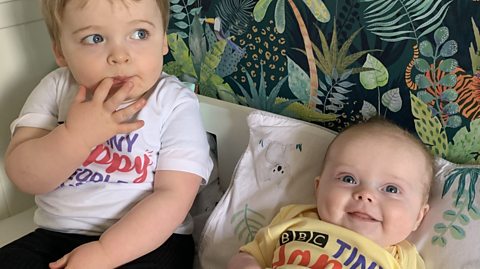
2. Schedule special time with your older sibling
Hannah explained that she tries to play with her eldest Joseph and give him her full attention when baby Scarlotte is sleeping.
вАЬI specifically do activities with him, like get the building blocks out or talk to him more.вАЭ She also tries to ensure that family visitors pay attention to her older child and not just to the baby, so Joseph doesnвАЩt feel pushed out.
She tells visitors very clearly, "youвАЩre not coming to see the new baby- youвАЩre coming to see Joe, so he feels number one.вАЭ
Both of these are excellent strategies to ensure your older child does not feel resentful of a new arrival.
I suggested that they could even use a visual timetable to help Joseph know when his turn for playtime will be. This could be a picture chart of the day, so that they can see that if Mummy is feeding baby, their special time will come next.
Hannah and Adam are the only parents in the group with differently gendered siblings and I wondered if that might affect how they play with them.
Psychologists have found that parents often treat girl and boy babies differently without even realising, e.g. speaking more softly to girls or doing more rough-housing play with boys. This can affect how they develop- in that they are likely to grow up conforming to and being limited by gender stereotypes.
But Adam explained that this was definitely not the case with them and they were more interested in being led by the childrenвАЩs interests rather than gender, which seems a sensible approach. Adam is looking forward to taking either or both of the children to watch the rugby one day!

Shared toys and individual toys
Siblings often fight over toys as well as attention from parents.
It helps that they all like to play with different things, but they still often want what the other one has.
This is normal. In fact, adults do this too вАУ it is like us going to a restaurant and being jealous of what everyone else ordered!
You can manage this by encouraging turn-taking, but admit that it can sometimes lead to "chaos."
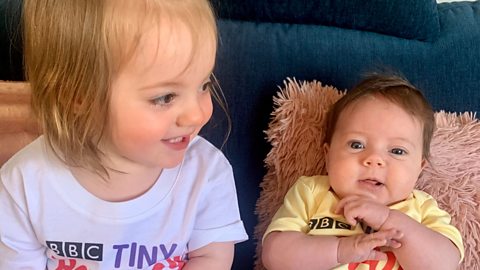
You might find that, as the children get older, they want and need their own individual possessions too. It is okay for them to each have something special for themselves, that they donвАЩt have to share, as well as communal stuff.
This helps them develop a sense of ownership and to see the benefits of sharing versus not: if they donвАЩt share their own special toys, they also canвАЩt play with their siblingsвАЩ special possessions either.
Developing conflict skills
Having siblings is a great way to learn to manage conflict вАУ having to take turns for toys or attention as well as learning to let others speak and that everyone has different needs and wants.
These skills take a long time to develop, so donвАЩt expect them to come easy. They will learn in time to understand and accept each otherвАЩs strengths and weaknesses.
When in competition, siblings learn ways to get attention from mum and dad.
This develops their problem-solving skills.
Szandra and Kieran explain that their eldest, Amelia (1) regressed a little when Lily-Rose arrived вАУ she would put on a baby voice and went back to using a bottle rather than her sippy cup.
This is normal and shows that Amelia has figured out that the baby who does these things, gets more attention вАУ so she is copying her sister in the hope of winning the competition. That is quite clever really!
Szandra and Kieran soon got her back on track by ensuring she received attention for being a вАШbig girlвАЩ rather than copying this behaviour.

A balancing act
Keeping siblings happy, content and conflict-free at playtime is clearly a big challenge, but with some careful planning, can be a source of great joy. However, as our families have shown, just donвАЩt expect it to go smoothly all the time!
The contributors to this article are all taking part in our Tiny Happy People Families feature on the Zoe Ball Breakfast Show. Keep in touch with their progress on ¬йґєєўЌш „“≥»лњЏ Radio 2.


